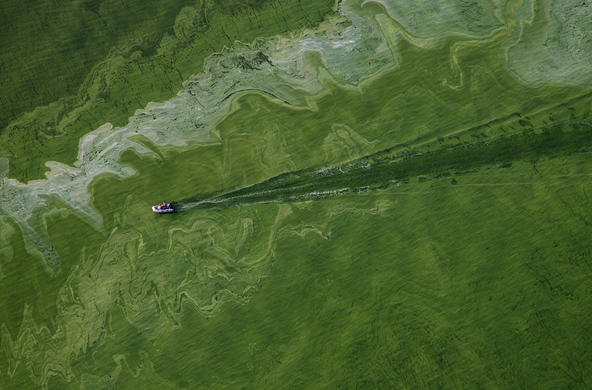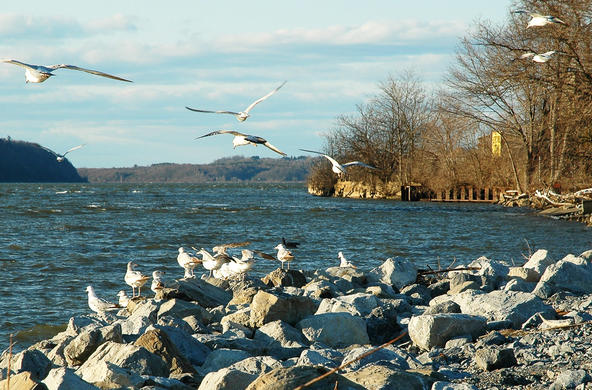We count among our staff some of the nation’s finest freshwater scientists. Their research has transformed the Hudson River’s management and is applicable to large rivers worldwide. They are also at the forefront of studies on how pharmaceuticals, agricultural practices, and dams impact water quality. Cary scientists are also leading local, regional and global lake research teams to better understand the ecological impact of harmful algal blooms (HABs) and extreme weather events.
Explore our research

Pharmaceutical Pollution
Our medications enter freshwaters and impact aquatic life. We are studying ecosystem-wide effects of drugs and other novel contaminants to keep streams healthy and drinking water safe. Learn more ›

Harmful Algal Blooms
Lakes are turning toxic due to pollution driven by development and agriculture. Forecasting algal blooms via remote sensing could help lake managers protect people and pets. Learn more ›

Road Salt
A growing body of scientific evidence has found that our dependence on road salt comes at a cost to the environment and human health. Learn more ›

Hudson River
Since 1985, our scientists have been studying the Hudson’s water quality, food webs, and effects of invasive species and climate change. We use these data to help guide river management. Learn more ›

Sustainable Fisheries
Freshwater fisheries are in decline. We are studying the ways that people and nature impact lakes and the fish they support – to guide sustainable fishery management. Learn more ›